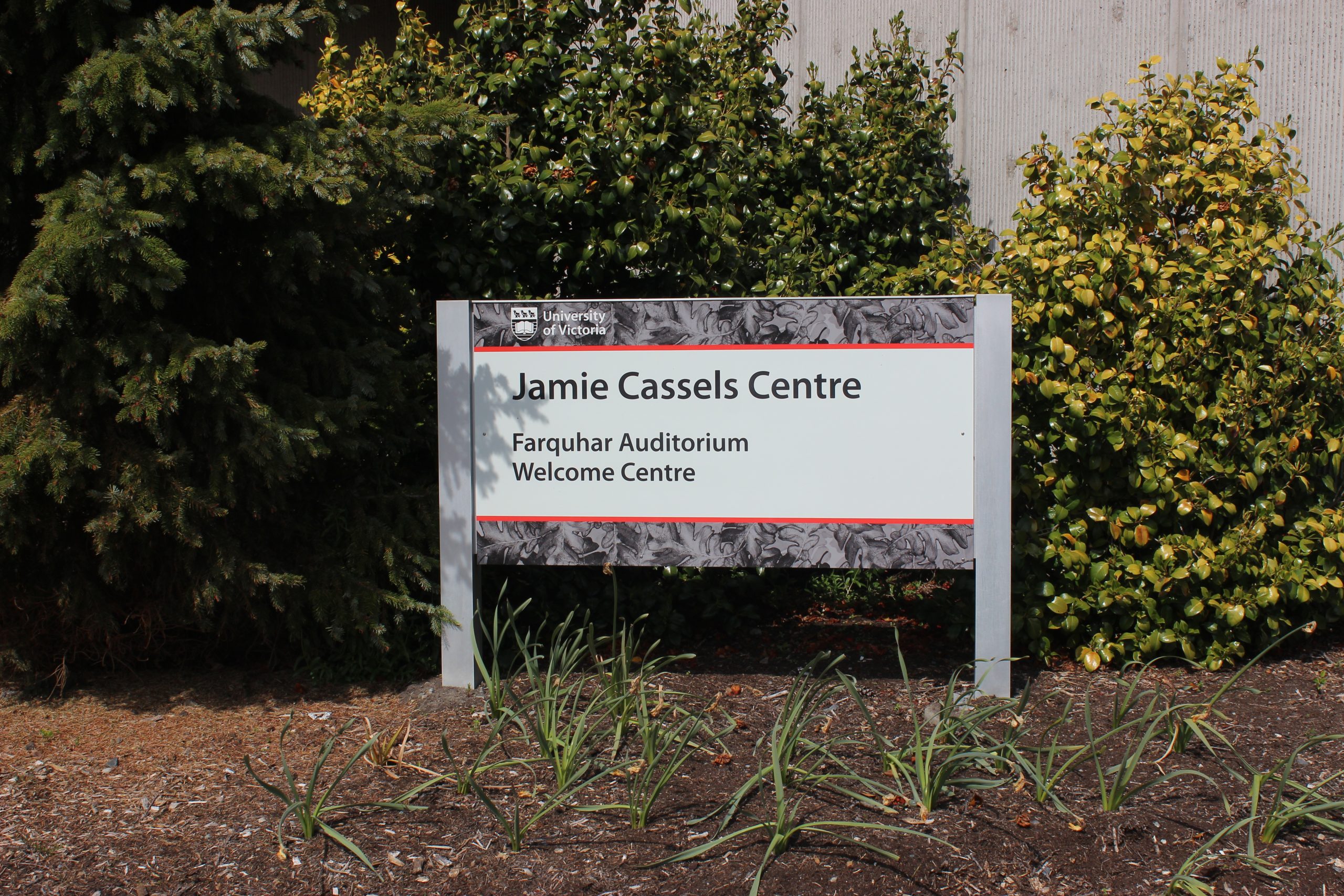Kansas City Chiefs kicker’s controversial address raises questions about convocation speaker selection process

Photo by Annilea Purser
Kansas City Chiefs kicker Harrison Butker has made headlines with his controversial speech delivered for a spring commencement ceremony. The speech has drawn attention to universities’ processes for selecting convocation speakers, raising questions about how they are chosen at UVic.
Butker’s speech, delivered on May 11 to the graduating class at Benedictine College, is being called misogynistic, sexist, and homophobic. The most viral segments of the 20-minute-long address include Butker’s thoughts on abortion, the Biden administration, pride month, “gender ideologies,” and the ambitions of women graduating from the college.
“I think it is you, the women, who have had the most diabolical lies told to you. How many of you are sitting here now about to cross this stage and are thinking about all the promotions and titles you are going to get in your career? Some of you may go on to lead successful careers in the world, but I would venture to guess that the majority of you are most excited about your marriage, and the children you will bring into this world,” Butker said in his speech.
Benedictine College — where the address took place — is a Catholic liberal arts school in the historically conservative city of Atchison, Kansas. The College has a small student population of around 2 100 students and according to their website, is committed to promoting the teachings of the Catholic Church.
According to a media release from early April, Benedictine College wanted to make this year’s commencement speaker particularly memorable, considering this class missed their high school graduations amidst the COVID-19 pandemic. This release characterized Butker as a “devout Catholic, a professional NFL football player, a successful entrepreneur, noted philanthropist, and sought-after public speaker,” and further detailed the speaker’s family life.
This isn’t the first time that Benedictine College has hosted a controversial commencement speaker. In 2023, the College hired Leonard Leo for the job — a republican lawyer who is often attributed as the man behind securing the right-wing shift in the U.S. Supreme Court. Butker’s speech echoes Leo’s, which called upon graduates to commit themselves to their faith in the face of “progressive bigots.”
UVic students may find themselves asking whether they too could ever expect a speaker like Butker at their convocation ceremony.
“There are a number of different convocation speakers during the ceremony, including a welcome by an Elder from our Elder’s Circle, speeches by the President and the Chancellor, the orator to introduce the Honorary Degree recipient, the Honorary Degree recipient themselves, the reading Deans of the faculties, and a member from Alumni who welcomes the graduates to their membership,” reads an emailed statement from a University of Victoria spokesperson.
In years prior, the most significant speeches have come from the President, the Chancellor, the orators to introduce the Honorary Degree recipients, and the Honorary Degree recipients.
The Spring 2024 convocation schedule at UVic spans over five days, from June 10–June 14. The convocation ceremonies are divided by faculty, with three honorary degrees being conferred: a doctor of science on Margaret Lidkea, a doctor of laws on Eloise Spitzer, and a doctor of letters on Dr. James Carley.
Lidkea will be honoured on June 11 for her contributions to environmental stewardship. Spitzer will be honoured on June 12 for her legal contributions, including her support in founding LEAF — an organization dedicated to achieving gender equality through law. Carley will be honoured on June 13 for his contribution to the humanities, particularly in relation to his achievements as a historian and scholar.
To date, there has been little to no reported controversy amongst the speakers at UVic’s convocation ceremonies in the past. According to an email statement from UVic, “each speaker’s materials are reviewed in different ways prior to Convocation ceremonies — with the exception of the Indigenous welcome.”
This year, anticipated speeches from Lidkea, Spitzer, and Carley will be treated no differently.
While a speech like Butker’s is unlikely to be shared during a convocation ceremony at UVic, other ceremony disruptions may be on the horizon, given that pro-Palestinian graduates have recently staged protests during graduation ceremonies across the U.S.







